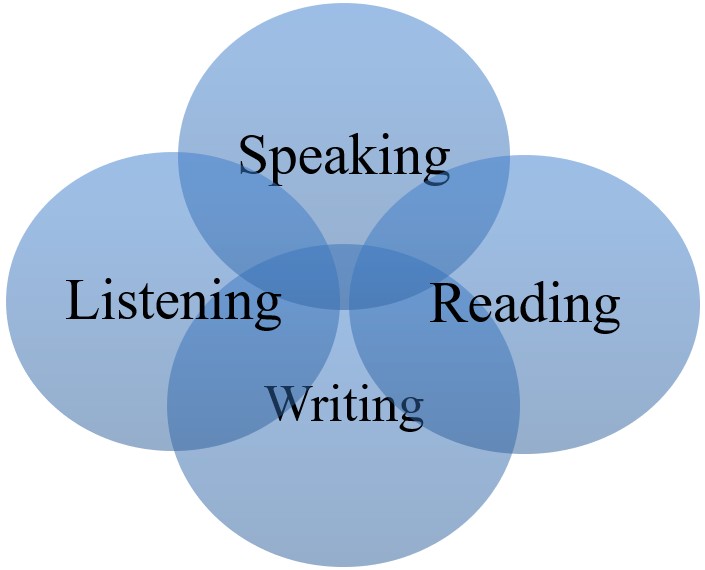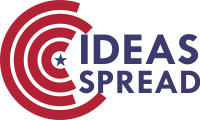Senior High School Teachers’ Perceived Level of Communication Skills and Teaching Performance
Abstract
Teachers handling subjects in English medium can help learners’ develop English communicative competence if they themselves possess a high level of communication skills in the language. In this study, Division of Ozamiz City’s senior high school teachers’ perceived level of communication skills in English, teachers’ teaching performance in developing learners’ communicative competence, and the correlation between the two were explored. The quantitative research approach was utilized by collecting data from 75 senior high school teachers, ten school heads, and 356 learners using researcher-made instruments that passed the validity and reliability tests. Data were analysed through descriptive-correlational research design using mean and standard deviation and Pearson r- Pearson product-moment correlation. In this study, it is found out that teachers perceived themselves to be superior in terms of their English communication skills while school heads and learners perceived them to be outstanding in their teaching performance. Results also revealed that teachers’ communication skills and teaching performance have no significant relationship. It is recommended that teachers be provided by school heads with opportunities to sustain their superior level of communication skills and outstanding teaching performance. More attention should be given to teachers’ writing skills and being initiators of communicative situations as these two constructs received the lowest rating from the respondents.
Downloads
References
Ajayi, L. (2016). High school teachers’ perspectives on the English language arts common core state standards: An exploratory study. Educational Research for Policy and practice, 15(1), 1-25. https://doi.org/10.1007/s10671-015-9174-3
Aldapa, M. L. (2016). Opening the Gates of a GATE Program: A Mixed Methods Study of Recruitment Processes and Retention Practices in One Multicultural Middle School(Doctoral dissertation, Loyola Marymount University). Retrieved on July 12, 2018 from https://search.proquest.com/openview/9f83ccafa85c8a6a388dcdc50af8351d
Altan, M. Z., McMurtry, D., & McMurtry, S. (2014). Effective teachers as effective entrepreneurs: results of a tri-nation professional development project. International Journal of Social Entrepreneurship and Innovation, 3(3), 230-244. Retrieved on August 2, 2018 from https://www.inderscienceonline.com/doi/abs/10.1504/IJSEI.2014.067121
Anjum, U. (2017). Needs of Modern Education in Madaaris: Case study in Pakistan. Retrieved on July 18, 2018 from http://iipccl.org/wp-content/uploads/2017/11/239-253.pdf
Avşar, A. Ş., & Yalçın, S. (2015). Determining the Parental Variables That Explain Students' Reading Success by Using CHAID Analysis. Education & Science/Egitim ve Bilim, 40(179). https://doi.org/10.15390/EB.2015.2890
Badawood, O. (2015). The features of effective English teachers as viewed by English language teachers and high school students in Saudi Arabia. International Journal of English Language and Linguistics Research, 3(6), 26-34. Retrieved on August 22, 2018 from http://www.eajournals.org/wp-content/uploads
Baliya, R., Teacher, K. V. N., & Jammu, G. N. (2013). Enhancing writing abilities of primary class students through cooperative learning strategies: An experimental study. International Journal of Behavioral Social and Movement Sciences, 2(1), 294-305. Retrieved on August 22, 2018 from http://ijobsms.in/vol02%20issue01%202013%20p34.pdf
Bear, G. G., Yang, C., Pell, M., & Gaskins, C. (2014). Validation of a brief measure of teachers’ perceptions of school climate: Relations to student achievement and suspensions. Learning Environments Research, 17(3), 339-354. Retrieved on August 16, 2018 from https://link.springer.com/article/10.1007/s10984-014-9162
Birch, B. M. (2014). English L2 reading: Getting to the bottom. Routledge. https://doi.org/10.4324/9781410614933
Broström, S., Johansson, I., Sandberg, A., & Frøkjær, T. (2014). Preschool teachers' view on learning in preschool in Sweden and Denmark. European Early Childhood Education Research Journal, 22(5), 590-603. Retrieved on August 22, 2018 from http://cds.cern.ch/record/1953563
Camello, N. C. (2014). Factors Affecting the Engineering Students’ Performance in the OBE Assessment Examination in Mathematics. International Journal of Academic Research in Progressive Education and Development, 3(2), 87-103. https://doi.org/10.6007/IJARPED/v3-i2/913
Daud, N. S. M., Daud, N. M., & Kassim, N. L. A. (2016). Second language writing anxiety: Cause or effect? Malaysian Journal of ELT Research, 1(1), 19. Retrieved on July 26, 2018 from http://www.melta.org.my/journals/index.php/majer/article/view/189
Doğan, B. (2014). Prospective Teachers' Reasons: The Importance of Reading a Book. Information World/Bilgi Dunyasi, 15(1). https://doi.org/10.15612/BD.2014.408
Emeck, N. (2018, Oct 01). Students criticise plan to cut classes. The Northern Territory News Retrieved from https://search.proquest.com/docview/2114711700?accountid=149218
Fisher, L. (2017). Researching learners’ and teachers’ beliefs about language learning using metaphor. Discourse and Education, 329-339. https://doi.org/10.1007/978-3-319-02243-7_17
Floyd, K. (2014). Empathic listening as an expression of interpersonal affection. International Journal of Listening, 28(1), 1-12. Retrieved on July 26, 2018 from https://www.tandfonline.com/doi/abs/10.1080/10904018.2014.861293
Grabe, W., & Kaplan, R. B. (2014). Theory and practice of writing: An applied linguistic perspective. Routledge. https://doi.org/10.4324/9781315835853
Graham, S., Harris, K. R., & Santangelo, T. (2015). based writing practices and the common core: Meta-analysis and meta-synthesis. The Elementary School Journal, 115(4), 498-522. Retrieved on August 12, 2018 from https://www.journals.uchicago.edu/doi/abs/10.1086/681964
Graham, S., Santos, D., & Francis-Brophy, E. (2014). Teacher beliefs about listening in a foreign language. Teaching and Teacher Education, 40, 44-60. https://doi.org/10.1016/j.tate.2014.01.007
Hintz, A., & Tyson, K. (2015). Complex listening: Supporting students to listen as mathematical sense-makers. Mathematical Thinking and Learning, 17(4), 296-326. https://doi.org/10.1080/10986065.2015.1084850
Hughes, R., & Reed, B. S. (2016). Teaching and researching speaking. Routledge. https://doi.org/10.4324/9781315692395
Humaera, I. (2015). Inhibition in Speaking Performance. Langkawi: Journal of The Association for Arabic and English, 1(1), 31-50. Retrieved on August 22, 2018 from https://www.ingentaconnect.com/content/doaj/24602280/2015/00000001/00000001/art00003
Hutabarat, M. D. (2015). Speech Acts on Company’s Presentation in German for Business and Economics. Indonesian Journal of Applied Linguistics, 5(1), 77-85. https://doi.org/10.17509/ijal.v5i1.834
Kadir, N. A., Subki, R. N. S., Jamal, F. H. A., & Ismail, J. (2014). The importance of teaching critical reading skills in a Malaysian reading classroom. In The 2014 WEI International Academic Conference Proceedings (pp. 208-219). Retrieved on August 2, 2018 from http://www.westeastinstitute.com/wp-content/uploads/2014/06/Norbaiyah-Abd-Kadir-Full-Paper.pdf
Kimonen, E. (2015). Education and society in comparative context. Springer. https://doi.org/10.1007/978-94-6300-373-5
Krebt, D. M. (2017). The effectiveness of role play techniques in teaching speaking for EFL college students. Journal of Language Teaching and Research, 8(5), 863-870. https://doi.org/10.17507/jltr.0805.04
Lasala, C. B. (2014). Communicative competence of secondary senior students: Language instructional pocket. Procedia-Social and Behavioral Sciences, 134, 226-237. https://doi.org/10.1016/j.sbspro.2014.04.243
Leong, L. M., & Ahmadi, S. M. (2017). An analysis of factors influencing learners’ English speaking skill. International Journal of Research in English Education, 2(1), 34-41. https://doi.org/10.18869/acadpub.ijree.2.1.34
Lucena, R. J., & San Jose, A. E. (2016). Co-operative learning in enhancing the speaking skills of students: A Phenomenological approach. International Journal of Advanced Multidisciplinary Research, 3(2), 67-71. Retrieved on August 2, 2018 from https://www.researchgate.net/profile
Maduegbunam, T., & Okafor, N (2014). Functional education: an essential tool for bridging the gap in education in nigeria. Retrieved on July 26, 2018 from https://scholar.google.com.ph/scholar
Majidi, A. (2013). English as a Global Language; Threat or Opportunity for Minority Languages? Mediterranean journal of social sciences, 4(11), 33. https://doi.org/10.5901/mjss.2013.v4n11p33
Mishra, K. (2014). Employability skills that recruiters demand. IUP Journal of Soft Skills, 8(3), 50. Retrieved on July 28, 2018 from https://search.proquest.com/docview/1627986150?pq-origsite=gscholar
Mishra, S. (2016). Endogenous Growth Theory and Role of Education. Splint International Journal of Professionals, 3(10), 74. Retrieved from https://search.proquest.com/docview/1906048588?pq-origsite= gscholar
Munirah. (2017). The effectiveness of concept sentence model toward writing skill of persuasive paragraph. Theory and Practice in Language Studies, 7(2), 112-121. https://doi.org/10.17507/tpls.0702.04
Naji Meidani, E., & Pishghadam, R. (2013). Analysis of English language textbooks in the light of English as an International Language (EIL): A comparative study. International Journal of Research Studies in Language Learning, 2(2), 83-96. https://doi.org/10.5861/ijrsll.2012.163
Nghia, T. L. H. (2015). Vietnamese students’ perception of English teacher qualities: Implications for teacher professional development. International Journal of Academic Research in Education and Review, 3(1), 7-19. Retrieved on August 12, 2018 from http://citeseerx.ist.psu.edu/viewdoc/download?doi=10.1.1.675.636&rep=rep1&type=pdf
Oermann, M. H., & Hays, J. C. (2015). Writing for publication in nursing. Springer Publishing Company. https://doi.org/10.1891/9780826119926
Papp, I. C., & Hajós, L. (2014). Education and working life in Hungary. Acta Technica Corviniensis-Bulletin of Engineering, 7(2), 105. Retrieved on July 26, 2018 from http://acta.fih.upt.ro/pdf/2014-2/ACTA-2014-2-16.pdf
Pearson, S. (2014). The process secondary administrators use to implement twenty-first century learning skills in secondary schools. University of Southern California. Retrieved on July 23, 2018 from https://search.proquest.com/openview
Renukadevi, D. (2014). The role of listening in language acquisition; the challenges & strategies in teaching listening. International journal of education and information studies, 4(1), 59-63. Retrieved on July 26, 2018 from https://www.ripublication.com/ijeisv1n1/ijeisv4n1_13.pdf
Rindal, U. (2014). What is English? Acta Didactica Norge, 8(2), Art-14. https://doi.org/10.5617/adno.1137
Romero, B. N. (2013). Descriptive Analysis of Vaughan Systems, Assets and Pitfalls of an Audiolingual Method. Porta Linguarum: revista internacional de didáctica de las lenguas extranjeras, (19), 113-128. Retrieved on August 18, 2018 from https://dialnet.unirioja.es/servlet/articulo?codigo=4593482
Selvi, A. F., & Yazan, B. (2013). Teaching English as an International Language. TESOL International Association. 1925 Ballenger Avenue Suite 550, Alexandria, VA 22314. Retrieved on August 22, 2018 from https://eric.ed.gov/?id=ED549560
Smith, L. E. (2015). English as an international language: No room for linguistic chauvinism. Journal of English as a Lingua Franca, 4(1), 165. https://doi.org/10.1515/jelf-2015-0002
Solar, E. (2011). Prove them wrong be there for secondary students with an emotional or behavioral disability. Teaching exceptional children, 44(1), 40-45. https://doi.org/10.1177/004005991104400105
Stejskal, L., & Stávková, J. (2014). Education as an income situation determinant of a consumer. Acta Universitatis Agriculturae et Silviculturae Mendelianae Brunensis, 58(6), 483-490. https://doi.org/10.11118/actaun201058060483
Szymanowskl, A. R. (2014). Voice disorders in teachers: Examining the problem and evaluating prevention. Journal of Singing-The Official Journal of the National Association of Teachers of Singing, 71(2), 201-206. Retrieved on August 26, 2018 from https://search.proquest.com/openview/6f9e1c9bc4146ca754c15fd7da65f5ca/1.pdf?pq-origsite=gscholar&cbl=971
Tyagi, B. (2013). Listening: An important skill and its various aspects. The Criterion An International Journal in English, 12, 1-8. Retrieved on July 23, 2018 from https://s3.amazonaws.com/academia.edu.documents/35052141
U.S. students need 21st century skills to compete in a global economy, voters say. (2017, Oct 10). U.S.Newswire. Retrieved from https://search.proquest.com/docview/451013378?accountid=149218.
Wassermann, S. (2015). Making meaning from scientific investigations and living with the uncertainties of teaching science as inquiry. Childhood Education, 91(6), 442-450. https://doi.org/10.1080/00094056.2015.1114795


This work is licensed under a Creative Commons Attribution 4.0 International License.
Copyright for this article is retained by the author(s), with first publication rights granted to the journal.
This is an open-access article distributed under the terms and conditions of the Creative Commons Attribution license (http://creativecommons.org/licenses/by/4.0/).









1.png)









1.png)











